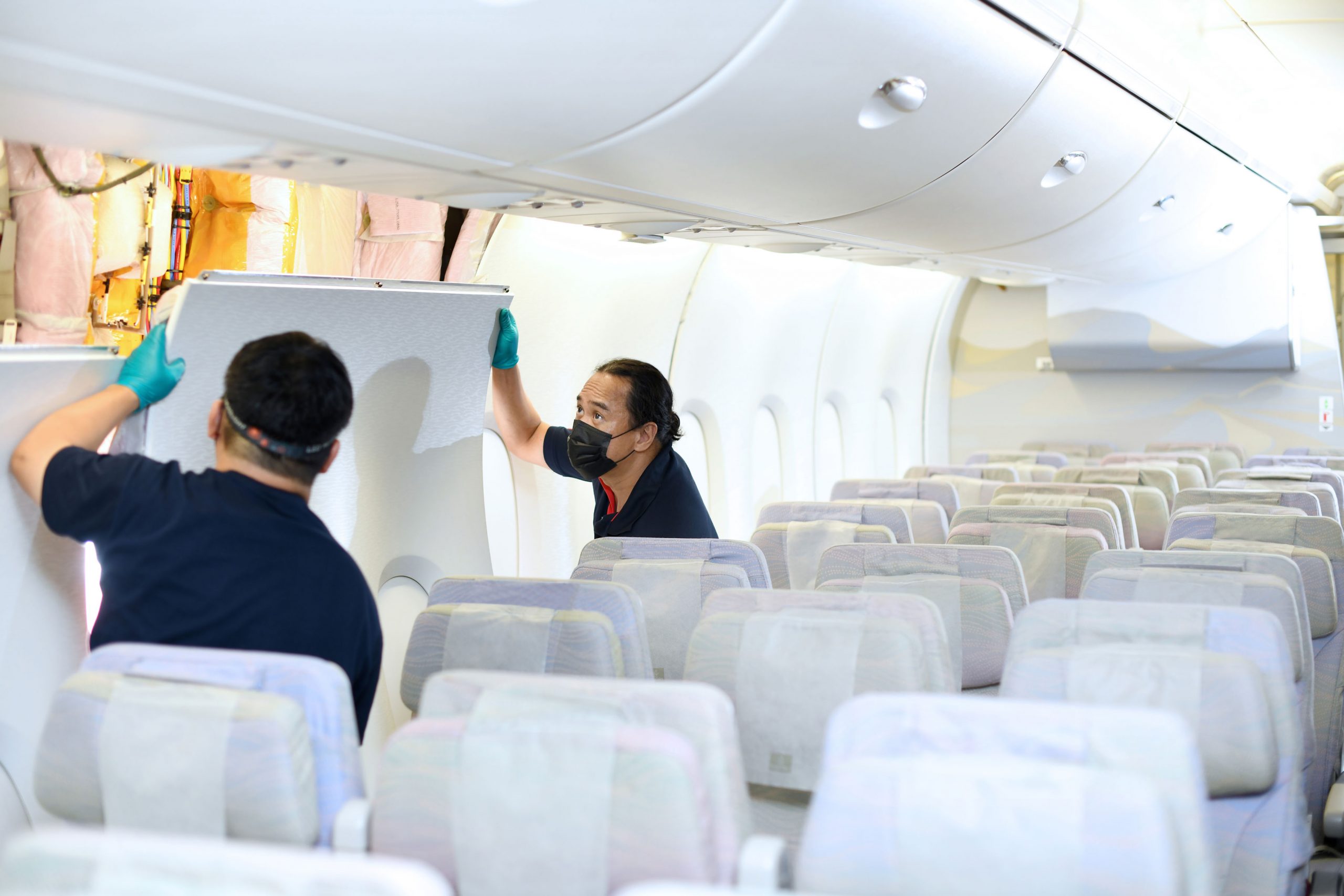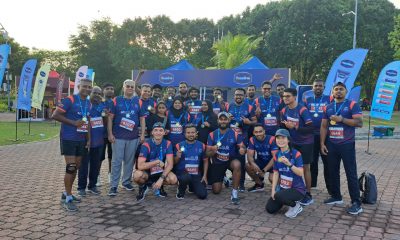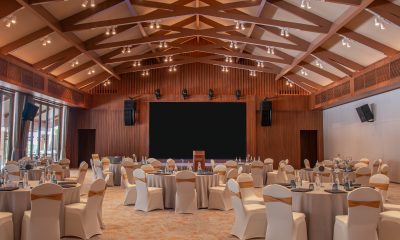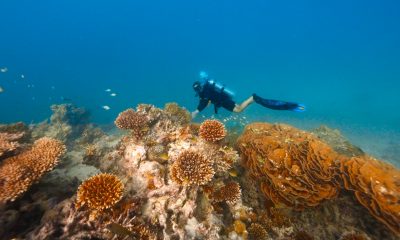International
Scientists hunt pandemic hotspots in race to test vaccines

LONDON/CHICAGO (Reuters) – The first wave of the COVID-19 pandemic may be waning. For vaccine developers, that could be a problem.
Scientists in Europe and the United States say the relative success of draconian lockdown and social distancing policies in some areas and countries means virus transmission rates may be at such low levels that there is not enough disease circulating to truly test potential vaccines.
They may need to look further afield, to pandemic hotspots in Africa and Latin America, to get convincing results.
“Ironically, if we’re really successful using public health measures to stamp out the hot spots of viral infection, it will be harder to test the vaccine,” said Francis Collins, director of the National Institutes of Health in the United States.
A vaccine is seen as essential to ending a pandemic that has killed nearly 370,000 people and infected more than 6 million so far, with world leaders looking at inoculation as the only real way to restart their stalled economies.
But running large-scale clinical trials of potential vaccines against a completely new disease at speed is complex, scientists say. Showing efficacy in those trials during a fluctuating pandemic adds extra difficulty – and doing so when outbreaks are waning makes it harder still.
“For this to work, people need to have a risk of infection in the community. If the virus has been temporarily cleared out, then the exercise is futile,” said Ayfer Ali, an expert in drug repurposing at Britain’s Warwick Business School.
“The solution is to move to areas where the infection is being spread widely in the community – that would be countries like Brazil and Mexico at the moment.”
Vaccine trials work by randomly dividing people into a treatment group and a control group, with the treatment group getting the experimental trial vaccine and the control group getting a placebo.
All participants go back into the community where the disease is circulating, and subsequent rates of infection are compared. The hope is that infections within the control group will be higher, showing the trial vaccine is protecting the other group.
With COVID-19 epidemics in Britain, mainland Europe and the United States coming down from their peak and transmission rates of the coronavirus dropping, a key task for scientists is to chase fluctuating outbreaks and seek volunteers in sections of populations or in countries where the disease is still rife.
A similar problem emerged when scientists were seeking to test potential new vaccines against Ebola during the vast 2014 outbreak in West Africa. Then, drugmakers were forced to drastically scale back plans for large trials because their vaccines were only test-ready late in the epidemic when case numbers were dwindling.
Looking abroad
Among the first COVID-19 vaccines to move into Phase II, or mid-stage, trials is one from the U.S. biotech company Moderna Inc (MRNA.O). Another is being developed by scientists at Oxford University supported by AstraZeneca Plc (AZN.L). The United States in July is planning to launch vast efficacy trials of 20,000 to 30,000 volunteers per vaccine.
Collins said U.S. health officials will tap government and industry clinical trial networks in the United States first and use mapping to detect where the virus is most active. They will also consider looking abroad if domestic disease rates fall too far, he said.
The U.S. government has experience in Africa of testing vaccines against HIV, malaria and tuberculosis.
“Africa is now beginning to experience lots of cases of COVID-19. We might very well want to run part of the trial there, where we know we can collect the data effectively,” said Collins.
Adrian Hill, director of the Jenner Institute at Britain’s Oxford University which has teamed up with AstraZeneca, started mid-stage trials last month which he said would aim to recruit around 10,000 people in Britain.
He told Reuters that with COVID-19 disease transmission rates dropping in the UK there is a possibility that the trial would have to be halted if they didn’t have enough infections to yield a result.
“That would be disappointing, and at the moment it’s unlikely, but it’s certainly a possibility,” Hill said.
Challenge trials
Underscoring the level of concern in the industry, AstraZeneca’s chief executive Pascal Soriot said his researchers were even contemplating running so-called “challenge” trials – where participants would be given the experimental vaccine and then deliberately infected with COVID-19 to see if it worked. Such trials are rare, high risk and hard to get ethical approval for.
As a more practical and swifter option, Soriot and others are looking to Brazil and other countries in South America, as well as parts of Africa where COVID-19 outbreaks are still growing and peaking, as ripe drug and vaccine testing grounds.
Brazil’s Health Ministry said it is in talks with various vaccine developers, including Moderna and the University of Oxford, about participating in clinical trials. The ministry said its goal was to provide access to a vaccine for Brazilians “in the shortest possible time.”
Difficulty recruiting candidates for mid-stage vaccine trials in countries where the COVID-19 pandemic is on the wane may be foreshadowed by the experience of doctors seeking infected cases for the World Health Organization’s multi-country Solidarity trial of potential treatments for the disease – including the generic drug hydroxychloroquine and Gilead’s (GILD.O) remdesivir.
In the Swiss portion of that trial, for instance, it took three weeks to get all of the ethical and regulatory approvals from authorities, and another week to get all the drugs, said Oriol Manuel, an infectious disease expert and national coordinator of the Solidarity study in Switzerland.
“We were able to enrol some patients in (one trial centre in) Lausanne,” Manuel said. “But when all centres were ready, the cases were fortunately disappearing.”
Reporting and photo: Reuters
International
Nika Zorjan’s ‘V Postelji’ music video showcases timeless beauty of Maldives

Released just three weeks ago, Nika Zorjan’s latest music video, ‘V Postelji’ (meaning “In Bed”), has captivated audiences with its stunning cinematography set against the breathtaking backdrop of the Maldives. Directed by videographer Niko Karo, who accompanied Nika to film the video, the project was organised by Moji Maldivi, an agency based in Slovenia dedicated to promoting the Maldives as a premier holiday destination in Balkan region.
The video beautifully captures Nika strolling through serene pathways shaded by iconic coconut palm trees at Villa Park, later walking along the sun-kissed beaches of Villa Nautica, and finally enjoying the golden sunset on a bed at the beach of Furaveri Maldives. Each scene showcases the natural beauty and tranquil ambiance of the Maldives, enhancing the emotional depth and visual splendour of the music video.
Nika Zorjan, renowned as a Slovenian pop star and Eurovision contestant, has also gained fame for her cover songs, including her most popular rendition of Sia’s Cheap Thrills, which has amassed nearly 50 million views on YouTube, with over 60 million total views on the platform. “Shooting a video in the Maldives is heavenly,” she added. Filmed in one of the world’s most captivating tourist destinations, the Maldives serves as more than just a scenic backdrop; it becomes an integral part of the video’s narrative.
V Postelji not only showcases Nika Zorjan’s musical prowess but also pays homage to the Maldives’ timeless allure and cultural richness. The video has resonated deeply with audiences, garnering praise for its artistic vision and the mesmerising beauty of the Maldivian landscape. The lush greenery, crystal-clear waters, and pristine beaches depicted in the video create a sense of paradise that complements the song’s evocative lyrics.
As viewers continue to immerse themselves in the captivating visuals and emotive melodies of V Postelji, it reinforces the Maldives’ reputation as a destination where natural beauty and tranquility converge effortlessly. Nika Zorjan’s collaboration with Niko Karo underscores their shared appreciation for the Maldives’ serene ambiance and its ability to inspire creativity and emotional expression. This partnership, facilitated by Moji Maldivi, highlights the agency’s dedication to showcasing the Maldives as an unparalleled holiday destination to the Balkan market.
Featured
Emirates undertakes largest known fleet retrofit project

Emirates has kick-started its plans to upgrade the entire interior cabins of 120 Airbus A380 and Boeing 777 aircraft – two of the largest commercial aircraft types in service today.
This ambitious project, representing a multi-billion dollar investment to ensure Emirates’ customers “fly better” for the coming years, officially commences in November and is managed entirely by Emirates’ Engineering team.
The target is to completely retrofit four Emirates aircraft from start to finish every month, continuously for over 2 years. Once the 67 earmarked A380s are refreshed and back in service, 53 777s will undergo their facelift. This will see nearly 4,000 brand new Premium Economy seats installed, 728 First Class suites refurbished and over 5,000 Business Class seats upgraded to a new style and design when the project is complete in April 2025.
In addition, carpets and stairs will be upgraded, and cabin interior panels refreshed with new tones and design motifs including the iconic ghaf trees which are native to the UAE.

No other airline has handled a retrofit of this magnitude in-house, and there’s no blueprint for such an undertaking. Therefore Emirates Engineering teams have been planning and testing extensively, to establish and streamline processes, and identify and address any possible snags.
Trials began on an A380 in July, where experienced engineers literally took each cabin apart piece-by-piece and logged every step. From removing seats and panelling to bolts and screws, every action was tested, timed and mapped out. Potential impediments to completing the installation of Emirates’ new Premium Economy Class or the retrofit of the remaining three cabins in just 16 days were flagged and documented for expert teams to review and address.
As part of the programme, new purpose-built workshops will be set up at Emirates Engineering to repaint, re-trim and re-upholster Business and Economy Class seats with new covers and cushioning. First Class suites will be carefully disassembled and sent to a specialised company to replace the leather, arm rests and other materials.
From the trials, Engineers discovered several unexpected solutions for instance: that existing food catering trucks could be easily repurposed to move parts destined for refurbishment from the aircraft to the workshop for their refresh, as these vehicles had doors of the right width and offer sufficient space.
Until the retrofit programme starts in earnest in November, a cross-disciplinary team has been assembled to regularly review the planning process, address any issues, and track updates on various aspects of the project such as procurement, staffing, and training.
Emirates’ new Premium Economy cabin class, which offers luxurious seats, more legroom, and a service to rival many airlines’ business offering, is currently available to Emirates customers travelling on popular A380 routes to London, Paris, Sydney. More customers will be able to experience the airline’s new Premium Economy cabins starting from year end, as the retrofit programme picks up momentum.
Featured
Eleanor helps over 30 Maldives hotels elevate guest services

Eleanor has been named as one of the top 10 concierge software providers globally.
Based on accurate, timely reviews from real users, the HotelTechAwards rank the world’s best hotel software firms and products and it also provides hoteliers direct access to a growing network of hotel technology professionals and decision-makers.
“The guest experience is the cornerstone of our platform. Our unified resort wide solution, Eleanor, has been built for resorts off the back of many years working in the industry and addresses the needs of both Sales and Marketing departments and perhaps just as importantly, the operational requirements of the team on the ground at the property. The days of resorts working with disjointed systems are now behind us,” says Darren Caple, co-founder and CEO.
“We are on a mission to make the guest’s resort experience as easy and as frictionless as possible. Whereas traditional providers in the market have come at this purely from a guest communication perspective, our background in resorts has allowed us to combine this basic requirement with the streamlining of operational processes. The result is truly a resort wide solution that removes the need for countless different systems to be deployed.
Eleanor allows resorts to deliver consistent, superior service levels to guests across all stages of their journey with contactless features helping to alleviate sensitive touch-points in the post pandemic period. More than 30 properties in the Maldives use our Eleanor platform to help butlers and guest services elevate the guest experience. These properties are seeing an increase in incremental revenue by over 30% and operational efficiencies of 600+ man hours per month. We are also beginning to roll out the platform in some Caribbean properties!”
Eleanor is making waves in the hospitality industry by pushing the conventional limits of what a resort guest app can achieve through its unique ability to facilitate direct bookings for services and activities. The traditional ‘request to book’ feature that is common amongst almost all other hotel apps is removed by a power booking and operational platform sitting at the heart of the solution that covers all the resorts’ departments. It’s this module which realises enormous operational benefits and insights for the resort.
“We, at Eleanor, are humbled and honoured that our clients have provided such positive reviews. Feedback from our clients, partners and hoteliers are incredibly valuable for us and we will continue to improve our offering and services”, said Caple.
To celebrate this success, Eleanor is currently offering resorts a free one month trial, together with free setup and training and discounted monthly fees.
Eleanor, founded in 2018 and has its headquarters in the United Kingdom. Created from over 15 years of hands-on expertise, Eleanor allows resorts to deliver consistent, superior service levels to its guests across all stages of their journey with contactless features helping to alleviate sensitive touch-points in the post pandemic period. Eleanor also helps to unlock operational efficiencies and boost incremental revenue and guest loyalty.
Hotel Tech Report’s Best Concierge Software 2022 Runner Up, reviewed as a preferred and reliable hotel software product by the global hotelier community.
For more information, visit www.eleanorapp.com.
-

 Action7 days ago
Action7 days agoBestbuy Maldives supports health, wellness as Main Sponsor of MNU Marathon 2026
-

 Cooking7 days ago
Cooking7 days agoMaagiri Hotel invites guests to celebrate Ramadan with daily Iftar
-

 Awards1 week ago
Awards1 week agoEllaidhoo Maldives secures HolidayCheck Gold Award for second consecutive year
-

 Love7 days ago
Love7 days agoRomance in nature: Valentine’s week at Eri Maldives
-

 Food1 week ago
Food1 week agoOBLU XPERIENCE Ailafushi invites guests to break fast island-style this Ramadan
-

 Business5 days ago
Business5 days agoFeydhoo Hall opens at dusitD2 Feydhoo Maldives as new event space
-

 Awards1 week ago
Awards1 week agoReethi Faru Resort recognised with HolidayCheck Award 2026
-

 News5 days ago
News5 days agoVentive Hospitality aligns Maldives portfolio with Green Fins marine sustainability platform








